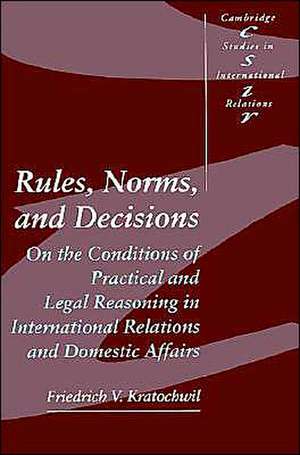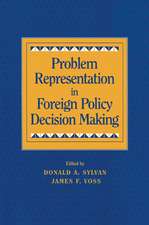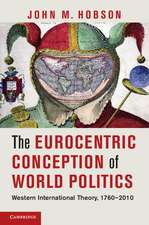Rules, Norms, and Decisions: On the Conditions of Practical and Legal Reasoning in International Relations and Domestic Affairs: Cambridge Studies in International Relations, cartea 2
Autor Friedrich V. Kratochwilen Limba Engleză Paperback – 25 apr 1991
Din seria Cambridge Studies in International Relations
-
 Preț: 198.90 lei
Preț: 198.90 lei -
 Preț: 232.37 lei
Preț: 232.37 lei -
 Preț: 237.58 lei
Preț: 237.58 lei -
 Preț: 210.70 lei
Preț: 210.70 lei -
 Preț: 190.01 lei
Preț: 190.01 lei -
 Preț: 200.87 lei
Preț: 200.87 lei - 8%
 Preț: 401.24 lei
Preț: 401.24 lei -
 Preț: 229.56 lei
Preț: 229.56 lei -
 Preț: 265.70 lei
Preț: 265.70 lei -
 Preț: 200.09 lei
Preț: 200.09 lei -
 Preț: 207.82 lei
Preț: 207.82 lei -
 Preț: 158.77 lei
Preț: 158.77 lei -
 Preț: 162.49 lei
Preț: 162.49 lei -
 Preț: 231.47 lei
Preț: 231.47 lei - 11%
 Preț: 584.77 lei
Preț: 584.77 lei -
 Preț: 241.77 lei
Preț: 241.77 lei -
 Preț: 287.87 lei
Preț: 287.87 lei -
 Preț: 209.13 lei
Preț: 209.13 lei -
 Preț: 299.23 lei
Preț: 299.23 lei -
 Preț: 286.13 lei
Preț: 286.13 lei -
 Preț: 287.87 lei
Preț: 287.87 lei - 11%
 Preț: 641.67 lei
Preț: 641.67 lei - 11%
 Preț: 585.78 lei
Preț: 585.78 lei - 14%
 Preț: 843.23 lei
Preț: 843.23 lei -
 Preț: 303.80 lei
Preț: 303.80 lei -
 Preț: 200.79 lei
Preț: 200.79 lei -
 Preț: 284.78 lei
Preț: 284.78 lei -
 Preț: 279.76 lei
Preț: 279.76 lei -
 Preț: 285.75 lei
Preț: 285.75 lei -
 Preț: 324.24 lei
Preț: 324.24 lei -
 Preț: 290.16 lei
Preț: 290.16 lei -
 Preț: 291.69 lei
Preț: 291.69 lei -
 Preț: 392.52 lei
Preț: 392.52 lei -
 Preț: 315.99 lei
Preț: 315.99 lei
Preț: 289.39 lei
Nou
Puncte Express: 434
Preț estimativ în valută:
55.39€ • 60.19$ • 46.56£
55.39€ • 60.19$ • 46.56£
Carte tipărită la comandă
Livrare economică 21 aprilie-05 mai
Preluare comenzi: 021 569.72.76
Specificații
ISBN-13: 9780521409711
ISBN-10: 0521409713
Pagini: 328
Ilustrații: 1
Dimensiuni: 154 x 229 x 24 mm
Greutate: 0.49 kg
Ediția:Reprint
Editura: Cambridge University Press
Colecția Cambridge University Press
Seria Cambridge Studies in International Relations
Locul publicării:Cambridge, United Kingdom
ISBN-10: 0521409713
Pagini: 328
Ilustrații: 1
Dimensiuni: 154 x 229 x 24 mm
Greutate: 0.49 kg
Ediția:Reprint
Editura: Cambridge University Press
Colecția Cambridge University Press
Seria Cambridge Studies in International Relations
Locul publicării:Cambridge, United Kingdom
Cuprins
Acknowledgements; Introduction; 1. Rules, norms, and actions: laying the conceptual foundations; 2. Anarchy and the state of nature: the issue of regimes in international relations; 3. The emergence of types and forms; 4. The force of prescriptions: Hume, Hobbes, Durkheim and Freud on compliance with norms; 5. The discourse on grievances: Pufendorf and the 'laws of nature' as constitutive principles for the discursive settlement of disputes; 6. The notion of 'right'; 7. The question of 'law'; 8. The path of legal arguments; Conclusion; Notes; Index.
Recenzii
'Kratochwil's book marks a major event in international relations theory. It demonstrates persuasively that it will not do to think of the international realm merely in terms of social physics, with billiard-ball states bouncing and balancing about; not merely in the instrumental rationality of the irrepressible utilitarians, who now vie for hegemony via game theory. International life, he shows, like domestic life, is constituted of rules, norms and conventions that are not epiphenomenal adjuncts of 'structures', and that give meaning both to the nature of units as well as the reasons for their actions.' John Gerard Ruggie, Colombia University
















